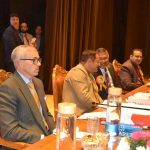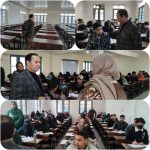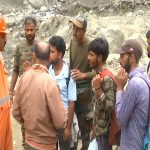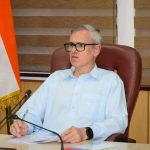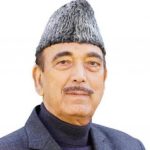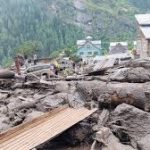Union Home Minister and Minister of Cooperation, Amit Shah interacted with 250 children from Jammu and Kashmir under ‘Watan Ko Jano’ programme in New Delhi today.
Union Home Secretary and Director of the Intelligence Bureau (IB) were also present on the occasion. The program aims to introduce the youth and children of Jammu and Kashmir to the nation’s dynamic progress, rich social fabric, and cultural diversity, fostering a strong sense of social, cultural, and emotional connection.
During the interaction, Union Home Minister Amit Shah described the ‘Watan Ko Jano’ program as an initiative to deepen the understanding of our country. He said that our country is our home and just as we are familiar with every part of our home, we should also know our country in the same way.
Shah said that this vision led the Government of India to launch the ‘Watan Ko Jano’ program. Home Minister said that Prime Minister Shri Narendra Modi has united the whole country by abolishing Article 370 and now the citizens of Kashmir have the same rights on the country as the citizens of any other state.
Amit Shah underlined that under the leadership of Prime Minister Shri Narendra Modi, significant efforts have been made over the past decade to make India prosperous, modern, and a global leader. He expressed confidence that in the future, students from around the world will come to India for education. As India advances, it will naturally drive progress for all. Home Minister emphasized that a more prosperous, modern, and developed India will bring benefits to everyone.
Union Home Minister said that under Prime Minister Modi’s leadership, Jammu and Kashmir has witnessed significant development in education, industry, healthcare, and infrastructure. He highlighted that the world’s highest railway arch bridge, Asia’s largest tunnel, and the country’s only cable suspension bridge have all been built in Kashmir. Jammu and Kashmir is also the only region in India to have two All India Institutes of Medical Sciences (AIIMS), along with two Indian Institutes of Management (IIMs).
It also has 24 major colleges, and eight universities. He emphasized that Kashmir, once badly affected by bomb blasts and terrorism, has undergone a remarkable transformation over the past decade. Incidents of stone pelting, bomb blasts, and terrorism have been eliminated, allowing schools to function smoothly. Infrastructure development, including roads, hospitals, and universities, has progressed rapidly. Moreover, 36,000 elected public representatives now have their rightful authority at the Panchayat and Municipality levels, strengthening grassroots democracy in the region.




